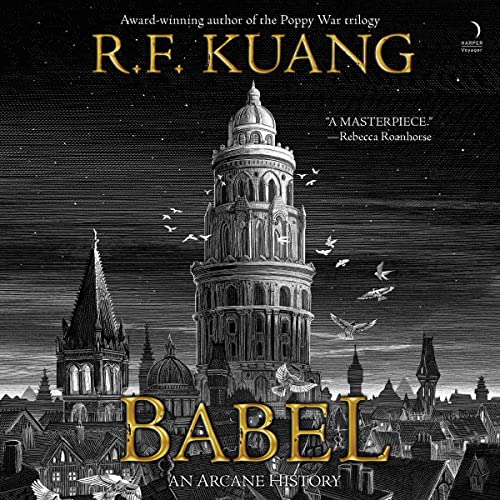 Babel, Or the Necessity of Violence: An Arcane History of the Oxford Translators' Revolution
Babel, Or the Necessity of Violence: An Arcane History of the Oxford Translators' Revolution by
R.F. Kuang Narrator: Chris Lew Kum Hoi,
Billie Fulford-Brown Format: audiobook,
eARC Source: purchased from Audible,
supplied by publisher via Edelweiss Formats available: hardcover, large print, paperback, ebook, audiobook
Genres: fantasy,
historical fantasy Pages: 545
Length: 21 hours and 46 minutes
Published by Harper Voyager on August 23, 2022
Purchasing Info: Author's Website,
Publisher's Website,
Amazon,
Barnes & Noble,
Kobo,
Bookshop.org,
Better World Books Goodreads A novel that grapples with student revolutions, colonial resistance, and the use of language and translation as the dominating tool of the British empire.
Traduttore, traditore: An act of translation is always an act of betrayal.
1828. Robin Swift, orphaned by cholera in Canton, is brought to London by the mysterious Professor Lovell. There, he trains for years in Latin, Ancient Greek, and Chinese, all in preparation for the day he’ll enroll in Oxford University’s prestigious Royal Institute of Translation—also known as Babel.
Babel is the world's center for translation and, more importantly, magic. Silver working—the art of manifesting the meaning lost in translation using enchanted silver bars—has made the British unparalleled in power, as its knowledge serves the Empire’s quest for colonization.
For Robin, Oxford is a utopia dedicated to the pursuit of knowledge. But knowledge obeys power, and as a Chinese boy raised in Britain, Robin realizes serving Babel means betraying his motherland. As his studies progress, Robin finds himself caught between Babel and the shadowy Hermes Society, an organization dedicated to stopping imperial expansion. When Britain pursues an unjust war with China over silver and opium, Robin must decide…
Can powerful institutions be changed from within, or does revolution always require violence?
My Review:
What if Britain’s “Imperial Century” had been powered, not just by the economic expansion that resulted from a combination of the burgeoning Industrial Revolution, the previous century’s legacy of colonialism and imperialism AND the supremacy of the high seas, but was also bolstered and even increased by magic?
And it seemingly changed little to nothing about much of anything important except to make the evils of colonialism and imperialism and bigotry even more obvious, odious and offensive than they already were and still are?
That’s Babel in a nutshell, at least in this reader’s opinion, which means that this is not going to be a kind review.
Rather, it’s going to be an extremely frustrated one. This book had so much promise and so much potential, but the longer I read and/or listened, the more I felt that it squandered all of that and then some.
I know I really need to explain all of that, and I’ll try. Keeping this from becoming an outright rant at points is probably going to be impossible. You have been warned.
At first, and for a rather long time thereafter, the story focuses on Robin Swift, who was required to pick up a ‘suitably’ English name at the age of 11 when his English ‘parent’ – although sperm donor is a much better description – quite literally plucked him out of the bed where Robin was dying of cholera right next to the corpse of his dead mother. In Canton, China. Robin, half-Chinese and half-English, is pretty much groomed from that day forward to present the appearance and manner of a perfect little English gentleman while constantly holding onto the truth that he exists in two worlds and is at home in neither.
But that truth is essential, because what Robin was literally born and bred for was to become a Chinese translator at Babel, the language institute at Oxford University where his now-guardian (not father, never father) is a professor. Babel is the place where the empire is expanded, and Robin is expected to be ever so grateful to have been rescued from death in his homeland that he should never question that the whole purpose of his existence is to assist Britain in subjugating that homeland while never even making a token protest for the daily micro- and often macroaggressions he faces for being part Chinese.
He’s been groomed to martyr himself on the altar of an empire that intends to sacrifice him to make his own people virtual slaves. Also quite literally, as he’s supposed to help his guardian and the empire smooth over the situation between Britain and China in the run up to the First Opium War. A situation that Britain deliberately created and exacerbated in order to have a pretext for that war.
It’s at the point when Robin finally admits the depths to which his guardian and the institution that he loves so dearly are willing to sink that Robin finally goes off the rails and starts doing something about all of it. And gets to fulfill what seems to be a lifelong desire to escape the whole thing through martyrdom.
Robin’s entire story can be summed up all too well in this exchange, about 2/3rds of the way through this excruciating long story, between Robin and his best friend Ramy.
‘Don’t be ridiculous.’ [said Ramy]
‘You’ve been saying that a lot.’ [replied Robin]
‘You’ve been ridiculous a lot.’ [Ramy rejoined]
And that’s the truth of it. Robin is ridiculous a lot and not in any way that’s funny.
Babel, through Robin’s eyes, builds a painstakingly detailed portrait of life among the “Babblers” – right before it tears it all down. But some of the pain that’s taken is on the part of the reader as there are plenty of times when you just want to yell at Robin and his cohort to “Get on with it!”
Something that I waited for through the entire book, but even when it does finally happen, it still takes such a long way about it that while the story ends, the ending is so equivocal that it doesn’t satisfy at all.
Escape Rating D: Because I didn’t. Escape, that is. I listened to about an hour of this thing every day for three weeks and came home and ranted and fumed for the rest of the day.
(The narrators did a fine job, which carried me through well past the point where I would have DNF’ed if I’d been reading. Sometimes a great reader can overcome a mediocre book but that task would have been too herculean for a normal human in this particular case.)
I have to admit that the magic system is utterly fascinating, as are the early stages of Robin’s journey, while the treatment he received from his guardian is generally neglectful at best and occasionally downright cruel, we see things through Robin’s eyes and he’s literally groomed to ignore and bury the offensive things he experiences. He does enjoy his studies and the whole world of learning that he’s been dropped into, and it’s easy to get caught up in his general pleasure even when specific incidents are beyond the pale.
The magic system relies on translation, specifically the bits that the act of translation occludes, obscures or ignores in an attempt to reach roughly similar meanings. It literally draws its magic from the things that are ‘lost in translation’, and requires the ability to hold the fullness of both languages in one’s head at the same time. To make magic, one has to be able to dream in both languages in order to know fully what the two disparate meanings are and make the variances between them manifest.
That the British Empire uses the pre-eminence of its Babel scholars to translate everything that passes through their hands in a way that favors themselves above all others and to such a degree that it is detrimental to others is not a surprise. Rather it takes the concept that ‘history is written by the victors’ and carries it out to its ultimate degree, that the ability to write the history actually makes the victors.
But all of that is background that becomes foreground as Robin and his group of friends are expected to not just participate in it but outright facilitate the subjugation of their own people through its use.
Because Robin is not alone in his training and education at Babel. He is part of a cohort of four scholars; Ramiz Rafi “Ramy” Mirza from Kolkata, Victoire Desgraves from Haiti by way of France, and Letitia “Letty” Price, the lone white person in their group. The person who, in nearly four years of close, loving friendship, never manages to grasp that her friends’ experience of Britain and the world it rules is vastly different from her own.
And that they might resent her for her willful blindness and pigheaded obstinacy. She’s not really one of them, and everyone is pretending. That no one ever truly blows up the whole thing in spite of extreme provocation by Letty at every imaginable turn means that the rest of the group, particularly Victoire who has to room with her, must have the patience of an entire choir of saints. That they must work together is a fact of life, that they never try to explain the facts of life to her until nearly the end makes their relationship frequently intolerable while being codependent at the same time.
A reviewer referred to the book as “Authorial Filibustering” and that feels right. There are plenty of points to be made here. Colonialism and Imperialism are evils in the world. Both outright in their practice and in the sense that “The only thing necessary for the triumph of evil is for good men to do nothing.” As a reader, I get it. I agree with it. And I felt like I was being bludgeoned with it from very nearly the beginning to the bitter end.
 In a work of historical fantasy, particularly one that cleaved so close to this period, those evils would be impossible to ignore and no reader should expect them to be ignored. But Babel is fiction, which means I also went into it expecting a story to be told that would captivate me – and in this particular case captivate me every bit as much as the author’s Poppy War series – which managed to deal with many of the same themes while still telling a fascinating, fantastic and compelling story.
In a work of historical fantasy, particularly one that cleaved so close to this period, those evils would be impossible to ignore and no reader should expect them to be ignored. But Babel is fiction, which means I also went into it expecting a story to be told that would captivate me – and in this particular case captivate me every bit as much as the author’s Poppy War series – which managed to deal with many of the same themes while still telling a fascinating, fantastic and compelling story.
For this reader, Babel turned out to be none of the above. Based on the reviews and ratings, clearly there are a lot of people who loved it. I’m disappointed not to be among them, but I’m just not.










 The Cliff's Edge (Bess Crawford #13) by
The Cliff's Edge (Bess Crawford #13) by 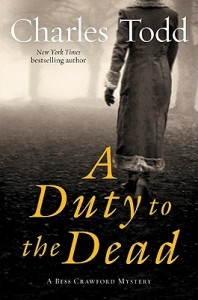 The cliff’s edge of the title is both literal and figurative in this 13th entry in the
The cliff’s edge of the title is both literal and figurative in this 13th entry in the  Escape Rating B-: As much as I have enjoyed this series, I believe that it is time for it to come to an end unless it makes a major change in direction. Because Bess has been in limbo for several entries now – at least since book 10,
Escape Rating B-: As much as I have enjoyed this series, I believe that it is time for it to come to an end unless it makes a major change in direction. Because Bess has been in limbo for several entries now – at least since book 10,  So Bess is in Yorkshire in the midst of this case, which is quite a muddle that doesn’t seem much clearer at its end. Not that the cause of the whole thing isn’t found, but rather that the solution isn’t terribly cathartic and doesn’t seem to resolve much of the surrounding tension.
So Bess is in Yorkshire in the midst of this case, which is quite a muddle that doesn’t seem much clearer at its end. Not that the cause of the whole thing isn’t found, but rather that the solution isn’t terribly cathartic and doesn’t seem to resolve much of the surrounding tension.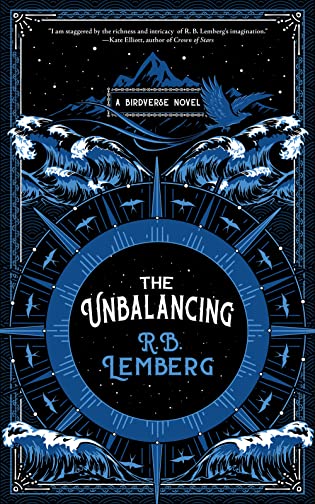 The Unbalancing by
The Unbalancing by 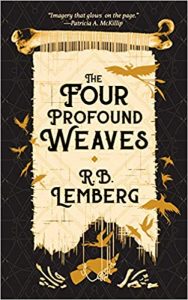 Escape Rating A: I enjoyed my introduction to the
Escape Rating A: I enjoyed my introduction to the 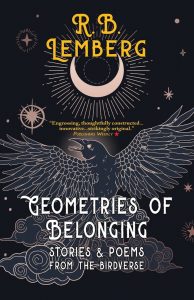 What gives this story its oomph – and lots of it – is the race to heal the star and save the islands. That the effort fails seems like it would be one hell of a downer – but it’s not. What makes the story rise in the end is the acknowledgement that the land, though beautiful, is not important. It’s the people that made the islands, and they’ll find a new place that they will make just as beautiful and fruitful, because they are bringing both the heart of Gelle-Gau and the heart of their beleaguered star along with them.
What gives this story its oomph – and lots of it – is the race to heal the star and save the islands. That the effort fails seems like it would be one hell of a downer – but it’s not. What makes the story rise in the end is the acknowledgement that the land, though beautiful, is not important. It’s the people that made the islands, and they’ll find a new place that they will make just as beautiful and fruitful, because they are bringing both the heart of Gelle-Gau and the heart of their beleaguered star along with them.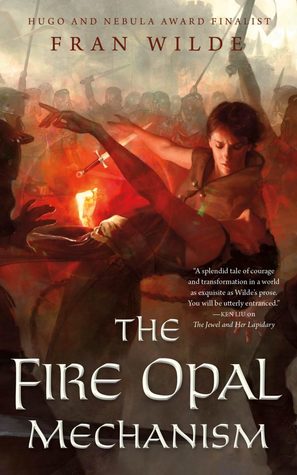 The Fire Opal Mechanism (Gem Universe #2) by
The Fire Opal Mechanism (Gem Universe #2) by 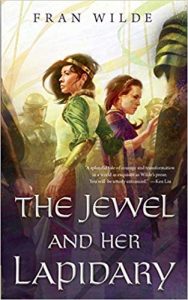 Escape Rating A-: At first, and for a rather long time thereafter, it seems as if the core of The Fire Opal Mechanism is about the freedom of information versus the censorship of it. And yet, at the beginning – the beginning that Ania and Jorit observe and not the place where they personally start – that wasn’t actually the case.
Escape Rating A-: At first, and for a rather long time thereafter, it seems as if the core of The Fire Opal Mechanism is about the freedom of information versus the censorship of it. And yet, at the beginning – the beginning that Ania and Jorit observe and not the place where they personally start – that wasn’t actually the case.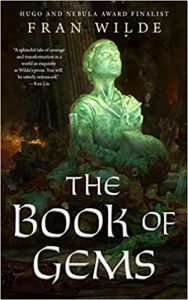 That their harrowing journey together bonds Ania and Jorit in their own mutual truth is the sparkling icing on a very tasty and thought-provoking little book-cake.
That their harrowing journey together bonds Ania and Jorit in their own mutual truth is the sparkling icing on a very tasty and thought-provoking little book-cake.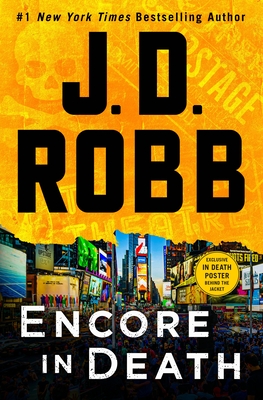 Encore in Death (In Death, #56) by
Encore in Death (In Death, #56) by  Figuring out what those ‘marriage rules’ are in her own marriage is a work in progress for Dallas. She expected to go through life alone – she certainly never expected to fall in love and get married to anyone, let alone to an ex-thief turned business mogul. All of which is pretty much the story of the entire
Figuring out what those ‘marriage rules’ are in her own marriage is a work in progress for Dallas. She expected to go through life alone – she certainly never expected to fall in love and get married to anyone, let alone to an ex-thief turned business mogul. All of which is pretty much the story of the entire 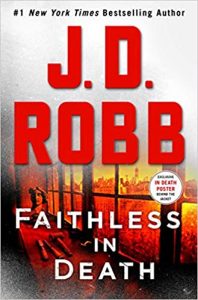 All things considered, however, this isn’t one of the great cases in Dallas’ career – not nearly as absorbing in itself as last year’s
All things considered, however, this isn’t one of the great cases in Dallas’ career – not nearly as absorbing in itself as last year’s  Babel, Or the Necessity of Violence: An Arcane History of the Oxford Translators' Revolution by
Babel, Or the Necessity of Violence: An Arcane History of the Oxford Translators' Revolution by  In a work of historical fantasy, particularly one that cleaved so close to this period, those evils would be impossible to ignore and no reader should expect them to be ignored. But Babel is fiction, which means I also went into it expecting a story to be told that would captivate me – and in this particular case captivate me every bit as much as the author’s
In a work of historical fantasy, particularly one that cleaved so close to this period, those evils would be impossible to ignore and no reader should expect them to be ignored. But Babel is fiction, which means I also went into it expecting a story to be told that would captivate me – and in this particular case captivate me every bit as much as the author’s 

 Current Giveaways:
Current Giveaways: Blog Recap:
Blog Recap: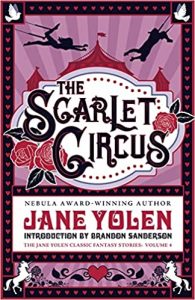 Coming This Week:
Coming This Week:










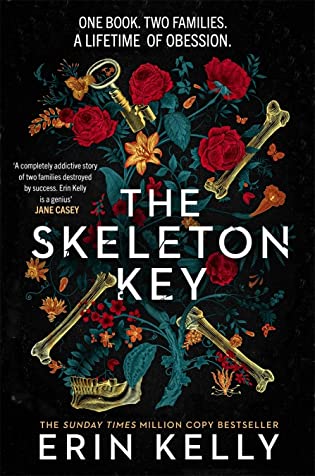 The Skeleton Key by
The Skeleton Key by 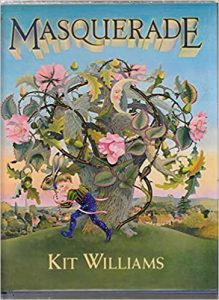 Two things to start. First, the concept of The Golden Bones may sound vaguely familiar – and that’s intentional on the part of the author and acknowledged at the beginning. There was a real, worldwide craze for armchair treasure hunt books in the 1980s, kicked off by the publication of the massively illustrated puzzle/story book
Two things to start. First, the concept of The Golden Bones may sound vaguely familiar – and that’s intentional on the part of the author and acknowledged at the beginning. There was a real, worldwide craze for armchair treasure hunt books in the 1980s, kicked off by the publication of the massively illustrated puzzle/story book 